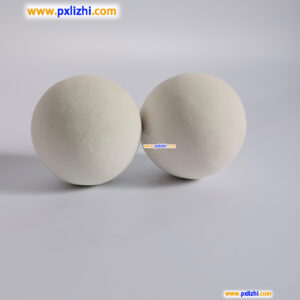
# Inert Ceramic Balls for Industrial Applications
## Introduction to Inert Ceramic Balls
Inert ceramic balls are widely used in various industrial applications due to their exceptional properties. These small, spherical ceramic pieces are designed to provide support, improve distribution, and enhance efficiency in chemical and petrochemical processes. Their inert nature makes them resistant to chemical reactions, ensuring long-term stability and performance.
## Key Properties of Inert Ceramic Balls
Inert ceramic balls possess several characteristics that make them ideal for industrial use:
- High Temperature Resistance: They can withstand extreme temperatures without degrading.
- Chemical Inertness: They do not react with most chemicals, ensuring process purity.
- Mechanical Strength: Their robust structure allows them to endure high pressure and mechanical stress.
- Thermal Stability: They maintain their properties even under rapid temperature changes.
## Common Industrial Applications
Catalyst Support
Inert ceramic balls are often used as catalyst supports in chemical reactors. They provide a stable base for catalysts, ensuring even distribution and optimal reaction conditions.
Packing Material
These balls serve as packing material in distillation and absorption columns. Their uniform size and shape promote efficient gas and liquid distribution, enhancing separation processes.
Heat Transfer Media
Due to their thermal stability, inert ceramic balls are used as heat transfer media in high-temperature applications, such as furnaces and kilns.
## Advantages Over Other Materials
Compared to metallic or plastic alternatives, inert ceramic balls offer several advantages:
- Longer lifespan due to corrosion resistance.
- Lower maintenance requirements.
- Improved process efficiency.
- Reduced risk of contamination.
Keyword: inert ceramic ball
## Choosing the Right Inert Ceramic Balls
When selecting inert ceramic balls for your application, consider the following factors:
- Size: Choose the appropriate diameter based on your process requirements.
- Material Composition: Ensure the ceramic formulation matches your chemical environment.
- Operating Conditions: Consider temperature, pressure, and flow rates.
## Conclusion
Inert ceramic balls play a crucial role in optimizing industrial processes across various sectors. Their unique combination of properties makes them indispensable for applications requiring chemical inertness, thermal stability, and mechanical strength. By selecting the right type and size, industries can significantly improve their operational efficiency and product quality.
